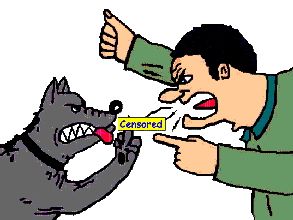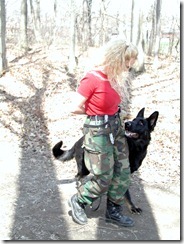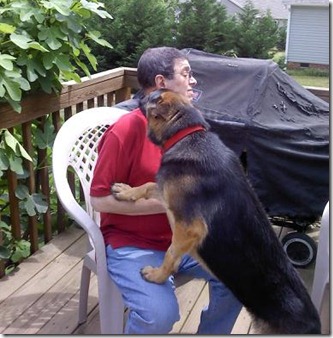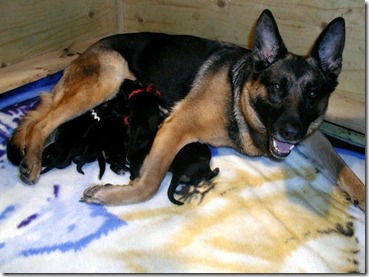I have given birth to 100’s of puppies over a couple of decades, not all mine as often other breeders ask me to help them with deliveries and through their first few weeks of life. Puppies are amongst the cutest, funniest most loving creatures on earth. They’re all naturally fun, confident, invincible, trusting, unbelievably clean and just love people. No matter the breed, size, color, sex they all born with this naïve view of the world.
Our responsibility as breeders is to enhance these traits so they go to their new homes with as pristine view of the world as they were born. I have developed a keen understanding of puppy behavior and still am challenged by each litter I encounter to spend a huge number of hours with them to this end. I find this part of my job so rewarding.

What is even more rewarding is seeing a puppy come back after a few months or a year with these natural puppy traits even more enhanced by the owners. This is when I know I have really done my job. I have found a good home with people who know or have learned how to properly care for, play with and love a puppy.
Unfortunately, it is nearly impossible to insure every puppy gets placed in such a home. You can ask questions, do background checks, offer free training, but you just cannot ensure you have found the right people for your puppy.

You can lead a horse to water but you cant make him drink.
As rewarding as the successes are, these failures are devastating.
Too often people don’t take the time to understand how to communicate with their puppy. They become forceful, stern, frustrated and in too many cases outright abusive to a puppy. When you understand how a happy and confident a dog should be, it is very easy to see when a dog is depraved like this. I have watched many dogs from their cradle to their grave, they never lose confidence or spirit naturally.

I can’t help but to cry for the depraved puppy. All of the immaturity, naivety and playfulness not longer exists. Some people mistake this for a well behaved puppy. Well the sad news is this is always false, it is a puppy who lives in fear, a puppy who’s imprinting is embedded by fear and a puppy who will never be a dog. Often this puppy by the time there are a year old can become quite unpredictable.

You might say all dogs are unpredictable, and all dogs can bite. I can say with certainty, this is not true, I have never had a dog bite someone, not even my protection trained dogs or my dual purpose police dogs will bite without my queue or will bite the wrong person. I have trained thousands of dogs, and could tell you with certainty the dogs who are not predictable. I do however, understand where this impression comes from, it is because the vast majority of dogs have their control work done through force not play, many of these dogs become unpredictable. So the answer is yes, many dogs are unpredictable, but its not natural, they were made that way.

This heavy handed obedience we do to our puppies is completely unnecessary, causes problems, is harder on you, makes your dog harder to train, constant retraining is always necessary and it will be a daunting task to build the trust back should you decide to stop it one day. There are so many much better ways to get better results more quickly, less costly, if we would only stop this inappropriate behavior towards our puppies.
I can prove it, as without fail at 8 weeks my puppies will sit, laydown, play chase, search with their nose, and even better, completely house trained (at my house). I do this by getting them to like dog games and playing with them.
![]()
If we all could only realize that taking time to learn to communicate with your puppy through love, play and things they understand, is the easiest, and most rewarding way to have a spirited dog who understands the boundaries of living with your family or working with you.
Please treat and train your puppies with love and play, learn about them, it could become the most rewarding experience you can imagine.










